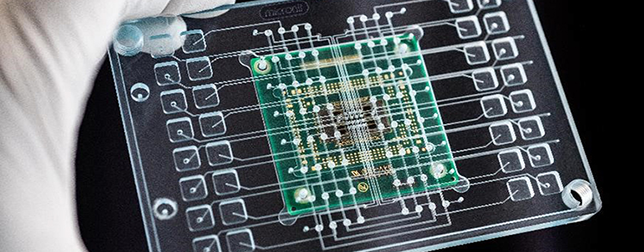Imec, the international research and development and innovation hub, active in the fields of nanoelectronics and digital technologies, has developed a novel organ-on-chip device for pharmacological research with unparalleled signal quality. The platform fuses imec’s high-density multi-electrode array (MEA)-chip with a microfluidic well plate, which Imec developed in partnership with Netherlands-based Micronit Microtechnologies; in this process, cells can be cultured, providing an environment that mimics human physiology. The new device can perform multiple tests in parallel. It aims to be a game-changer for the pharmaceutical industry, offering high quality data in the drug development process.
Read more BioSensics Launches Digital Platform for Clinical Trials
Drug development is a lengthy process that involves not only years of studies and large piles of cash, but also a great deal of pre-clinical and clinical testing. Only a handful of new drugs make it to the market each year. Animals used during in vivo testing aren’t always good human analogues, and humans of course face risk of developing serious side effects should they take part in clinical trials. Recently, a rise is seen in the use of in vitro testing with cell or tissue cultures. However, even these cultures often use unorganized monolayers of cells that do not possess the structural and functional properties of an actual organ. Furthermore, most tools do not have ample resolution for recording extracellular and intracellular activity. And finally, standard cell cultures aren’t enough for high-throughput testing.
Imec’s new lab-on-chip is made up of two components. The first is a microfluidic well plate consisting of 16 wells that holds and moves the cells/tissue and drug candidate. The well plate’s unique pattern of grooves and pillars cause the cells to grow in a structure similar to the actual organ. The other component is a high-density CMOS-based multi-electrode array (MEA) chip developed by Imec. The chip handles the signal processing and analog-to-digital conversion. It consists of 1,024 electrodes for each of the 16 microfluidic wells (a total of 16,384 electrodes), allowing for a resolution that can detect intracellular action potentials as well as extracellular signals. Each of the 16 wells can perform an individual assessment, meaning different experiments can be performed in parallel for high throughput.
Read more Imec’s Wireless Eye-Tracking Glasses Will Help Research Neurological Disorders
“By using grooves, heart cells can for example grow into a more heart-like tissue. In this way, we fabricate miniature hearts-on-a-chip, making it possible to test the effect of drugs in a more biologically relevant context. Imec’s organ-on-chip platform is the first system that enables on-chip multi-well assays, which means that you can perform different experiments or – in other words – analyze different compounds, in parallel on a single chip,” explained Veerle Reumers, project leader at imec. “This is a considerable increase in throughput compared to current single-well MEAs and we aim to further increase the throughput by adding more wells in a system.”
“Altogether the platform is a big step closer to mimic a real heart without using animals,” added Reumers. “Add to this the significant increase in throughput and the intracellular resolution, and it becomes clear that our device heralds a new-generation of drug screening tools for the pharmaceutical industry.”
Imec said it is now looking for pharmaceutical and biotech companies to help them test and further develop the device.













